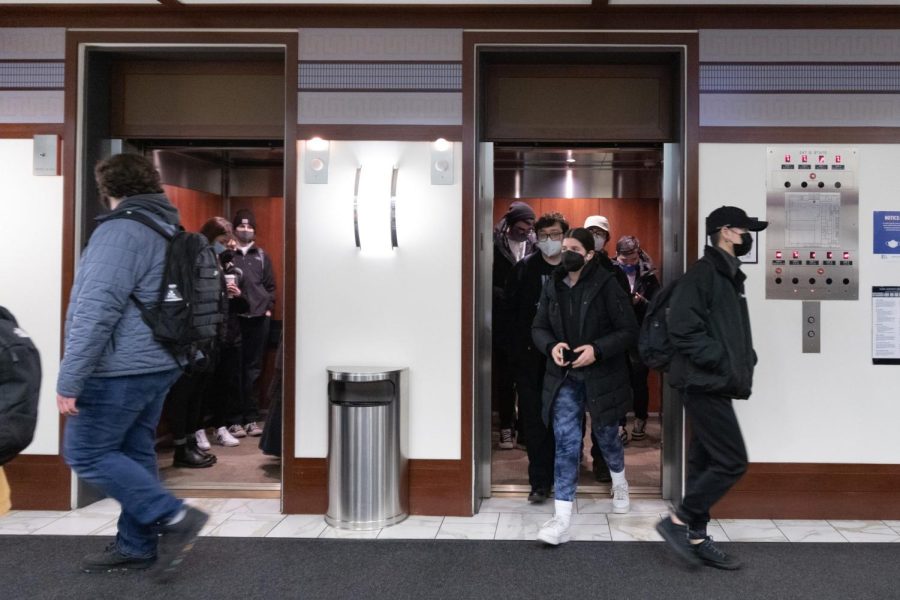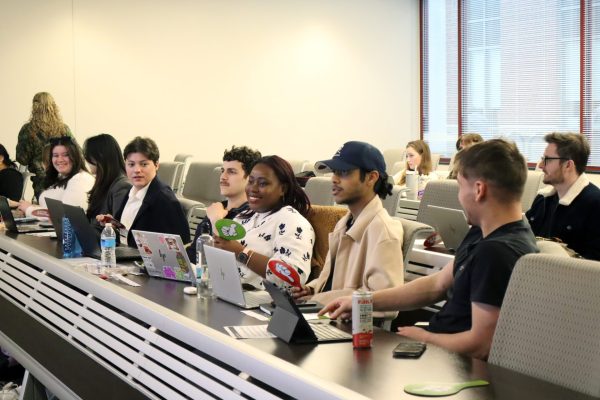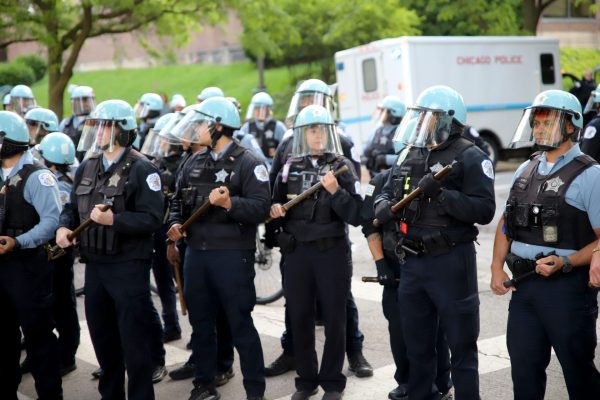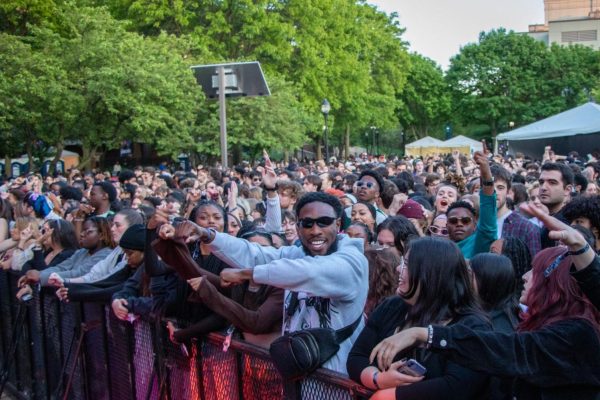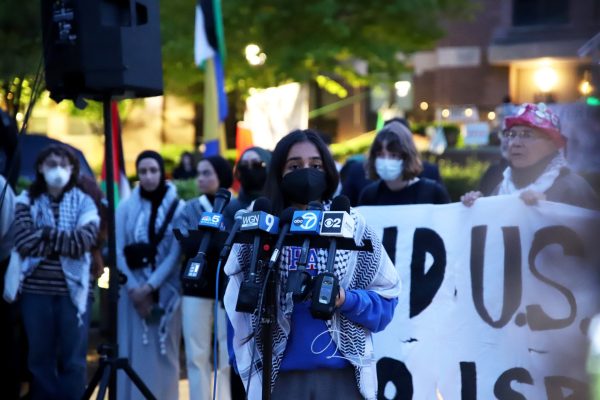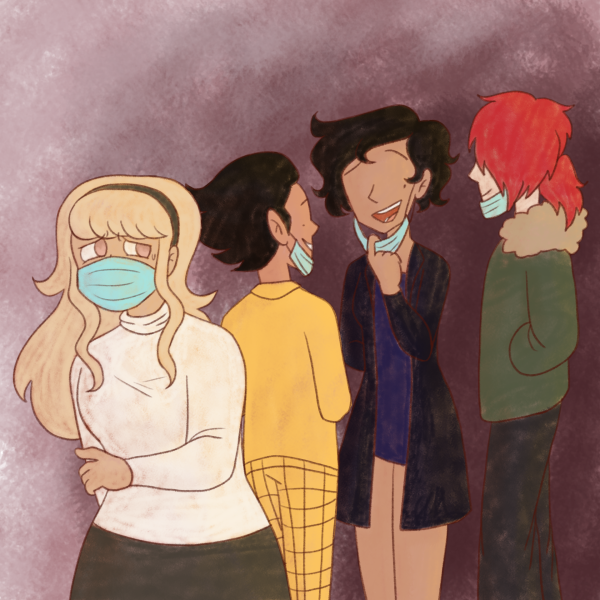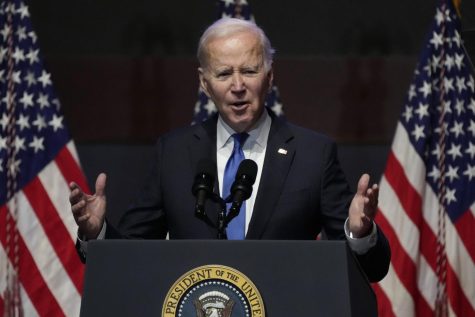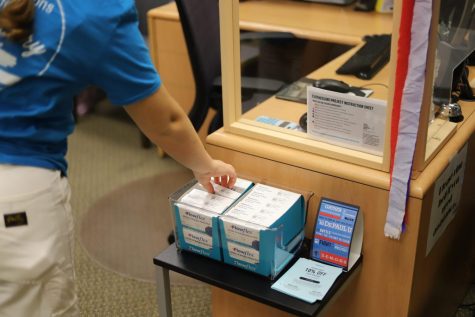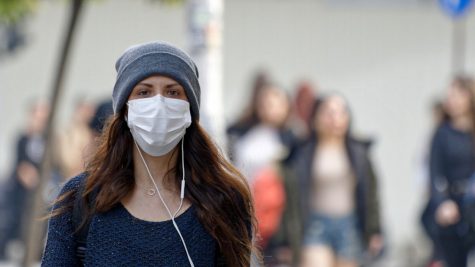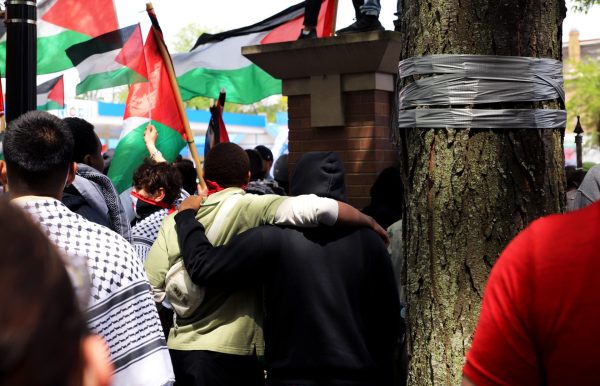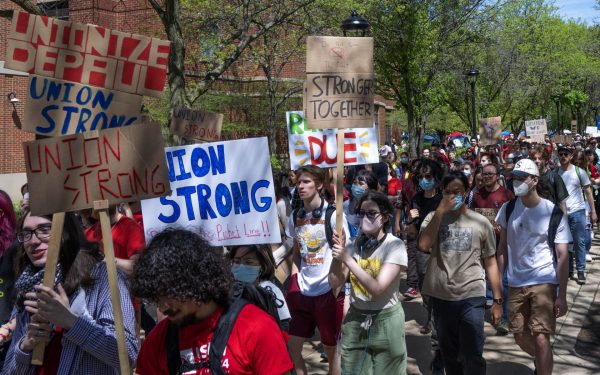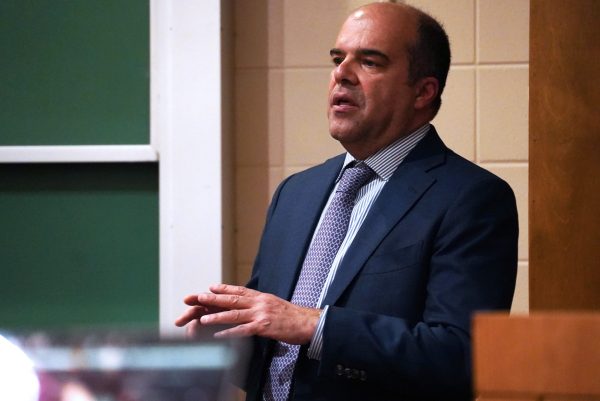Students lax about COVID precautions heading into new year
Although many students have given up on wearing masks, some students remain concerned as a new variant is on the rise in the U.S.
The new year marked both the start of the Winter quarter for DePaul students and the continued spread of the highly contagious Omicron variant, XBB.1.5. Chicago is currently at medium risk for COVID-19, but increasing hospitalizations in the city create higher risk for students and the community.
While COVID-19 restrictions have lessened greatly over the past couple of years, XBB.1.5 is new to the United States and is making its way across the country with higher rates in the Northeast compared to other regions. In this region, XBB.1.5 makes up more than half of cases seen after the holiday season.
Public health experts like Dr. Allison Awady, the Commissioner of the Chicago Department of Health, anticipates a rise in the city’s COVID risk-level in the weeks following Christmas and New Years.
For DePaul students and faculty who began classes fresh off the holiday season, the short turnaround brought students back to dorms, classrooms and other shared spaces immediately after weeks of large holiday gatherings and travel across the country.
The symptoms of XBB.1.5 do not differ greatly from COVID-19, but the fast transmission could potentially result in a higher number of cases in students and faculty.
That said, the variant has yet to make a large impact on DePaul’s population.
Student Joselyn Gonzalez said she had not heard of the variant before, but she still doesn’t have any worries about Covid while returning to classes after the holidays.
“I feel pretty safe coming into class,” she said. “I’m not at all worried about catching it myself.”
As for classroom protocols, many professors this quarter are allowing students to choose what works best for them and their personal health. Gonzalez said professors are treating Covid-19 like other illnesses such as the common cold or the flu.
“I think overall they’ve [professors] just kept the notice of if you’re feeling sick just don’t come to class,” she said.
DePaul’s official COVID-19 policy requires all students, faculty, and staff to be vaccinated and boosted. For classes and all gatherings, students and faculty are to be aware of their symptoms and stay home if they are sick.
Freshman Lisa Robe said that a lack of exposure to the COVID-19 makes her feel safe on campus and in classes.
“Personally, I’m not worried about Covid right now because I know a lot of people around me don’t have it, so I’m not really that concerned,” she said.
Robe said she feels protected because she knows that if her friends or family were to contract the virus or be exposed, they would tell her. She adds that she is still glad her teachers have policies in place.
“On the first day, both of my teachers said that if you’re not comfortable you can wear a mask or leave the classroom,” Robe said. “They also said that if you are sick, just don’t come to class.”
For many classrooms, social distancing and mask requirements are a thing of the past. The remaining protocols surrounding Covid-19 help continue to reduce risk, but many students have chosen to move forward without heavy concern.
Freshman Reece Tao echoed other students and said he does not see a reason for increased worry over the beginning of a new quarter.
“I don’t think Covid will be too much of an issue coming off of the holidays,” Tao said.
The use of masks in and around campus has decreased since the “mask-friendly” policy was put in place, but Tao does not think that mask usage has changed since the holidays or the XBB.1.5 variant.
Tao does choose to continue to wear one and says that it is his personal preference. Masks are still recommended in DePaul’s guidance for students, although they are no longer required.
“I’d say about 30% of students still wear a mask,” Tao said. “I feel relatively safe around campus,” he said.


